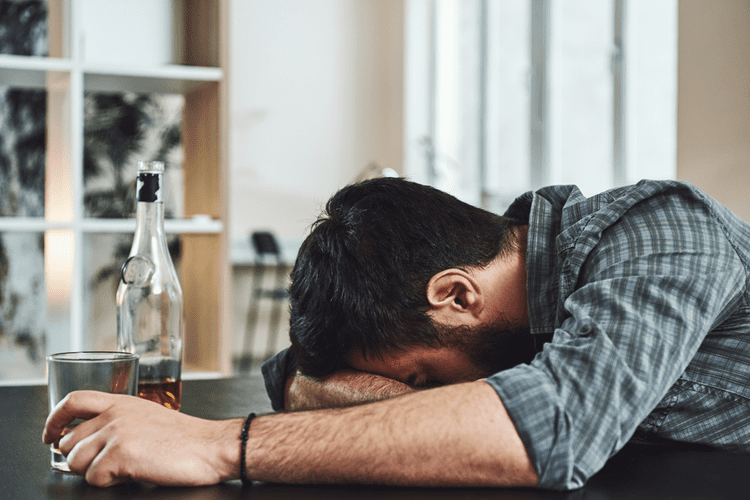However, once you get through the initial withdrawal symptoms, you should notice a huge difference in your mental and physical health. When you consistently drink alcohol, your body adapts to its presence. Abruptly stopping or significantly reducing alcohol intake can cause the body to react with withdrawal symptoms. These symptoms vary in intensity depending on several factors, including how long you’ve been drinking, how much you typically drink, and any underlying health conditions.

Remember That Everything You’re Going Through is Temporary
Drinking to excess over an extensive period of time often leads to the development of hepatitis, also known as liver inflammation, along with the condition called fatty liver. However, the good news is that, if one acts early, it’s not only possible to prevent further damage to this organ. In fact, the reversal of damage is a reality, as well, since the liver is capable of self-healing to a certain extent.
- Alcohol withdrawal can cause excessive sweating, vomiting, and diarrhea, leading to dehydration and electrolyte imbalances.
- This quality has not served me well, particularly in sobriety.
- She should endeavor to avoid the substances she longs for, and she’s building up a framework to help her visit calm.
- There are a lot of people, including us, who promise to be there each step of the way.
- Individuals can face various obstacles as they adjust to being newly sober.
Day 20
However, it is important to note that healing continues well beyond the first year. The damage caused by years of substance use, particularly in the brain and nervous system, may take multiple years to fully recalibrate. This is why some people still experience moments of fatigue, fogginess, or emotional flatness even after reaching the one-year mark.
- Gillian Tietz is the host of the Sober Powered podcast and recently left her career as a biochemist to create Sober Powered Media, LLC.
- If an emergency arose and you could no longer stay and enjoy Thanksgiving dinner, your dopamine levels would drop and take your mood along with it.
- You will likely feel a range of emotions, including sadness, anger, frustration, and fear.
- Generally, when we talk about alcohol and depression, we’re speaking specifically about co-occurring depression and alcohol abuse.
- Some drugs have very intense withdrawals, whereas others are very minimal.
- Consider taking on a leadership role within your support group, such as becoming a sponsor or leading a meeting.
Step 2: Join Sober Support Groups
Alcohol withdrawal is a serious medical concern, and you should make a plan with your physician to ensure that you can start cutting back safely. There are numerous positive emotional and social components of sobriety in addition to the obvious physical benefits. These have the potential to drastically improve the quality of one’s life; including the life quality of the recovering alcoholic, and even that of their family members. Early recovery is challenging, but with proper planning, support, and self-awareness, individuals can navigate this stage safely and lay a solid foundation for their sober life ahead.

You don’t have to sit there, hands gripping the table’s edge, white-knuckling your way through. Ah, yes, anxiety – the familiar, jittery monster under your bed. You’d think the noise in your head would quiet when you quit.
So if you’re new and a beginner to opiate recovery, this is a great place to start. So I’m not going to go deep into these because that would make this a really long webinar. I just wanted to make this a brief overview video on this topic of what you can do to feel better again after you quit. The Recovery Village Columbus Drug, Alcohol and Mental Health Rehab specializes in compassionate, evidence-based care tailored to your needs. Whether you’re seeking help for yourself or a loved one, we’re here to guide you every step of the way. These symptoms can be both physically and psychologically challenging and may vary depending on the substance 1 year clean and sober from which the individual is withdrawing.

RECENT POSTS
And don’t be afraid to say “no” to anything that could put your sobriety at risk—your recovery comes first. Surround yourself with people who support your recovery—whether it’s family, friends, a therapist, or a recovery community. Joining support groups can help you feel connected and understood by others who’ve been through similar challenges. The duration of this stage depends on the person and the program—it can be anywhere from a few weeks to several months. After a relapse, you know what works https://ecosoberhouse.com/ and what does not work in recovery.
By continually adding to your successes, you can solidify your commitment to a life of sobriety. At Cedar Recovery, we believe every step forward in recovery deserves to be recognized. You don’t need to wait for a big anniversary to celebrate your progress. Some people celebrate every week, while others focus on annual milestones.
- Following a relapse, you most likely have a support system, self-help skills, and experience that can help you get back on track quickly.
- There is not a single cure for addiction, but it is a treatable condition.
- One minute you’re cooking dinner, and the next, you’ve lost five minutes to daydreaming about that one time you threw up on your mother-in-law’s new rug.
- It’s called sobriety fatigue, and it can be one of the most difficult parts of living a new life in recovery after you quit drinking alcohol.
- Knowing what a relapse is will help you understand when you or a loved one are in the middle of one.
- Of course, relationships in long-term recovery are not always easy.
Engage in Positive Activities
It would be best to look into detox at an inpatient treatment center for additional support and medical help. Medical staff alcoholism symptoms and other support people can help you deal with the physical and mental withdrawal symptoms. Having a strong support network can make a big difference in getting sober. Friends/family and support groups provide emotional encouragement and practical help, which can ease the recovery process. Many people find that having someone to talk to helps them stay committed to their goals.
